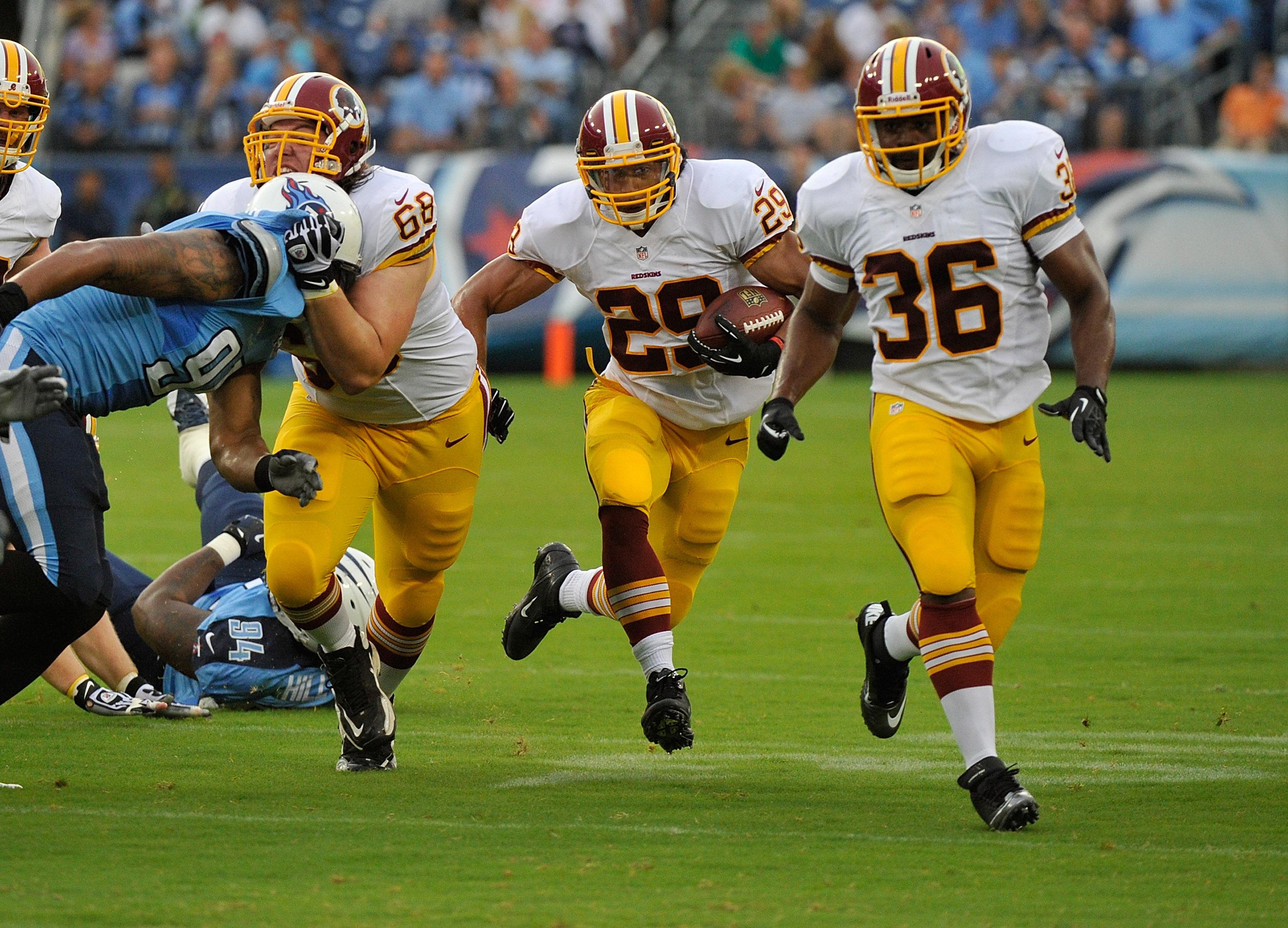Last week, Slate editor David Plotz decreed that we would no longer refer to Dan Snyder’s team by its outdated, insulting nickname. In the aftermath of that decision, I took a journey through the site’s archives to see when and how we’d used the name before. During that search, I found an amazing fact: The nickname was once banned from ESPN, as it was deemed too offensive to be broadcast on television.
In 2004, Dan Wachtell wrote a series of dispatches for Slate from the National Scrabble Championship. In Part 4 of his series, titled “You Can’t Spell That on Television,” he describes the concessions that were made because the tournament final was broadcast on ESPN. Wachtell writes (the bold is mine, and his original language has been preserved to illustrate the point at issue):
A few years back, a dispute arose within the Scrabble community about whether players should be allowed to use vulgar or offensive words. A recreational player, who was Jewish, discovered that the meaning given for the word JEW in the Scrabble dictionary was a verb, meaning to haggle with someone over money. Not subscribing to the belief that in Scrabble the “words” have absolutely no meaning, she raised a fuss. Some people agreed with her—most notably the Anti-Defamation League—and about 170 words were ultimately expunged from the Scrabble dictionary. … All the obviously offensive words were removed, but so were seemingly innocuous ones like FART, PAPIST, and COMSYMP (COMmunist SYMPathizer); as well as obscure slurs that you probably never would have known were offensive, like ABO (ABOrigine) and SKIMO (Eskimo). Players protested vehemently and a compromise was forged: The official dictionary for home and school use would be censored, but the words in question would be acceptable for tournament play.
This year, the issue resurfaced because the tournament was to be televised. The National Scrabble Association made it clear that the 170 verboten words, while acceptable during the first 30 rounds, would not be allowed during the televised finals. (This was decided in conjunction with ESPN, apparently to avoid the wrath of the FCC.) The rules were made clear to all players before the tournament, and the list of bad words was provided to the two finalists the night before their match. If they were unsure whether a word they wanted to play during the game was acceptable, they were to consult an official.
In the weeks leading up to the match, many players had voiced objections to what they perceived to be hypocritical censorship. Viewers would not have been offended by many words on the list, like “ABO,” while they might very easily (if ignorantly) be offended by numerous unrestricted words like, say, FAGOTED or FAGOTING, which are forms of a verb meaning “to tie something, usual sticks, into a bundle” (or, as it’s known, a FAGOT), or by NIGGARD and NIGGARDLY, which of course just mean “stingy.” Perhaps most hilariously, one of the words on the no-no list is REDSKINS, which obviously appears on ESPN dozens of times every week during football season.
My friend and colleague Stefan Fatsis, the author of the indispensable book Word Freak, was part of ESPN’s broadcast team when the network aired the Scrabble championships in the mid-2000s. He confirms that the Washington NFL team’s nickname—which is labeled “usually offensive” by Merriam-Webster—was indeed on the list of words that could not be used during those tournament finals. Fatsis says everyone involved in the production was aware of the irony here: that the Worldwide Leader didn’t want to sully its airwaves with a word that constantly sullied its airwaves.
The pejorative term for Native Americans is still on Scrabble’s “POO List” of expurgated words, Fatsis adds. (The list is so named because POO is one of the words that’s not allowed.) Words on the POO List are no longer published in the Official Scrabble Players Dictionary, which is designed for home and school use. They are legal, though, in rated tournaments—except, it seems, those tournaments broadcast by ESPN.
